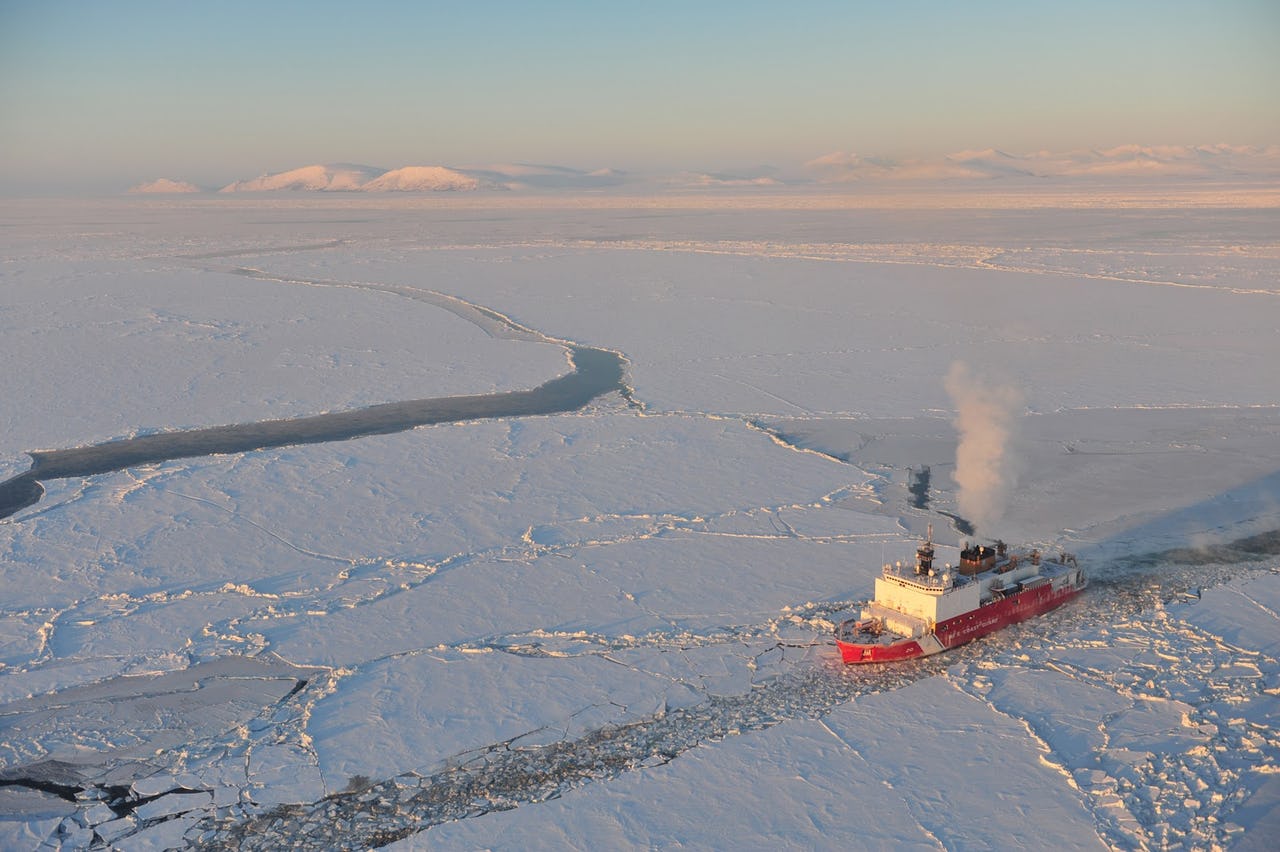Russia's Reaction to the US Continental Shelf Announcement: Political Posturing or Setting the Stage for a Big Move?

The Kigluaik Mountains are visible as the Coast Guard Cutter Healy breaks ice for the Russian tanker Renda near Nome Jan. 13, 2012. Photo: U.S. Coast Guard
On March 18th 2024, Russia, through its representative at the International Seabed Authority, declared that it does not recognize the outer limits of the continental shelf unilaterally established by the United States. Earlier, in December 2023, the U.S. announced the limits of the continental shelf beyond 200 nautical miles from the coast (extended continental shelf, ECS) in various regions, including in the Arctic.
The US ECS announcement does not overlap with the Russian ECS submission in relation to the Arctic Ocean, so there is no direct clash of national interests. But given the geopolitical tensions, Moscow could not miss a chance to pinprick its key rival, when such opportunity availed itself. To some extent, the logic behind Russia’s statement, blaming the United States for selecting international law provisions “that they find convenient to implement and reject those that impose certain obligations on them”, has some basis. Not being a party to UNCLOS, but abiding by the bulk of its provisions as reflecting customary international law, the U.S. assured that ECS outer limits were determined using the requirements set out in Art. 76 of UNCLOS. Except one – to submit the scientific data on ECS to the Commission on the Limits of the Continental Shelf (CLCS), which is a body established by UNCLOS to evaluate the sufficiency of the data, verify the correct application of the required criteria and make recommendations based on this evaluation (Art.76 (8)). Under Art. 76 (8), the final and binding ECS limits are established by coastal states themselves, but on the basis of CLCS recommendations.
Without going into the details of the legal dispute on whether and to what extent Art. 76 of UNCLOS reflects customary international law, it could be assumed that the US, as a non-party to UNCLOS, was not obliged to submit to CLCS. However, the CLCS procedure set out in Art. 76(8) arguably represents an important element of the whole UNCLOS “package” dealing with the establishment of ECS and recognition by other states, and cannot be easily separated from the other provisions of Art. 76. The Commission is a body formed to validate a coastal state’s efforts with regard to ECS in the eyes of the whole international community, so dodging the CLCS procedures severely undermines the credibility of the US announcement. Establishing ECS without getting CLCS’ recommendations also puts the United States on unequal terms with UNCLOS states-parties – going through the whole CLCS process often entails additional efforts, as well as long waiting time (decades) to complete the ECS bid. For example, since its initial submission in relation to the Arctic Ocean in 2001, Russia had to revise it numerous times based on CLCS recommendations, spending significant resources to gather additional scientific data, and by 2024 has still not completed the bid (although making significant progress in 2023).
The US has stated that it “has prepared a package of data for submission to” CLCS, which will be filed upon the US accession to UNCLOS, and that the state is “also open to filing its submission package with the Commission as a non-Party to the Convention.” Whatever it may mean, until the US has done so, other states are left wondering how to react to the unilateral announcement, and Russia has chosen not to accept it.
Russia’s demarche is remarkable yet for another reason. In the statement, Russia urges the United States to ratify UNCLOS to assume the full range of rights and duties. This call may sound more than strange amid loud voices from inside Russia to withdraw from UNCLOS. Despite the fact that even in case of withdrawal from the Convention, Russia would still be bound by most of its provisions as customary law, proponents from the State Duma and Defense Ministry still believe that such a move would somehow help Russia strengthen its grip on the Arctic and get rid of unnecessary limitations. It could be that the Foreign Ministry, which published the statement on the US’ ECS with the call to ratify UNCLOS, simply did not coordinate with other state authorities who had made anti-UNCLOS attacks previously. But it should not be ruled out that the rather contradictory wording was used by Russia deliberately – since it is unlikely that the US will ratify UNCLOS in foreseeable future, the selective US approach towards Art. 76 can be exploited by Russia as a potential justification for its own denunciation of the Convention in future.
Andrey Todorov, PhD, Researcher at the Netherlands Institute for the Law of the Sea (NILOS) & Utrecht Centre for Water, Oceans and Sustainability Law (UCWOSL), Utrecht University.